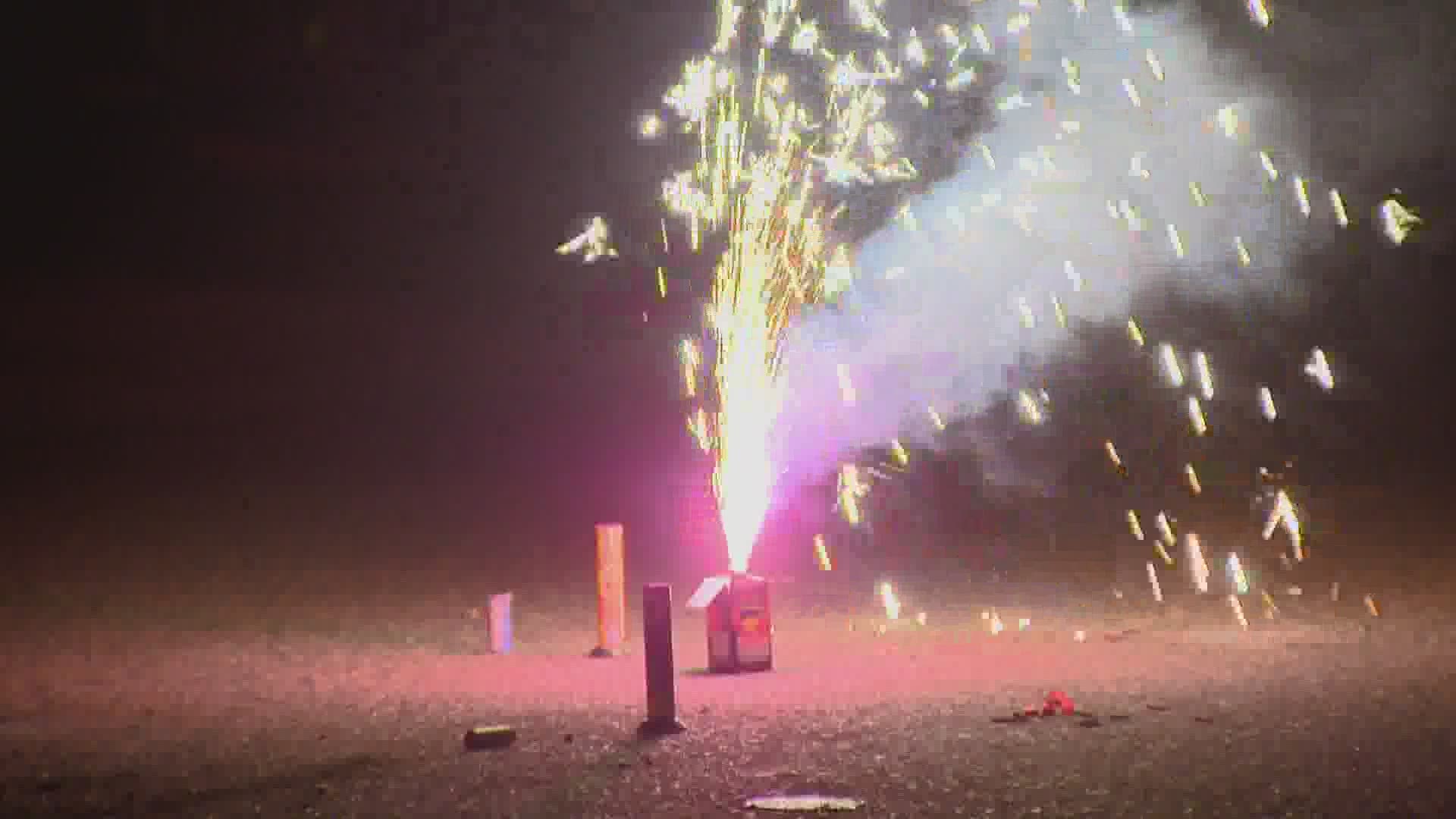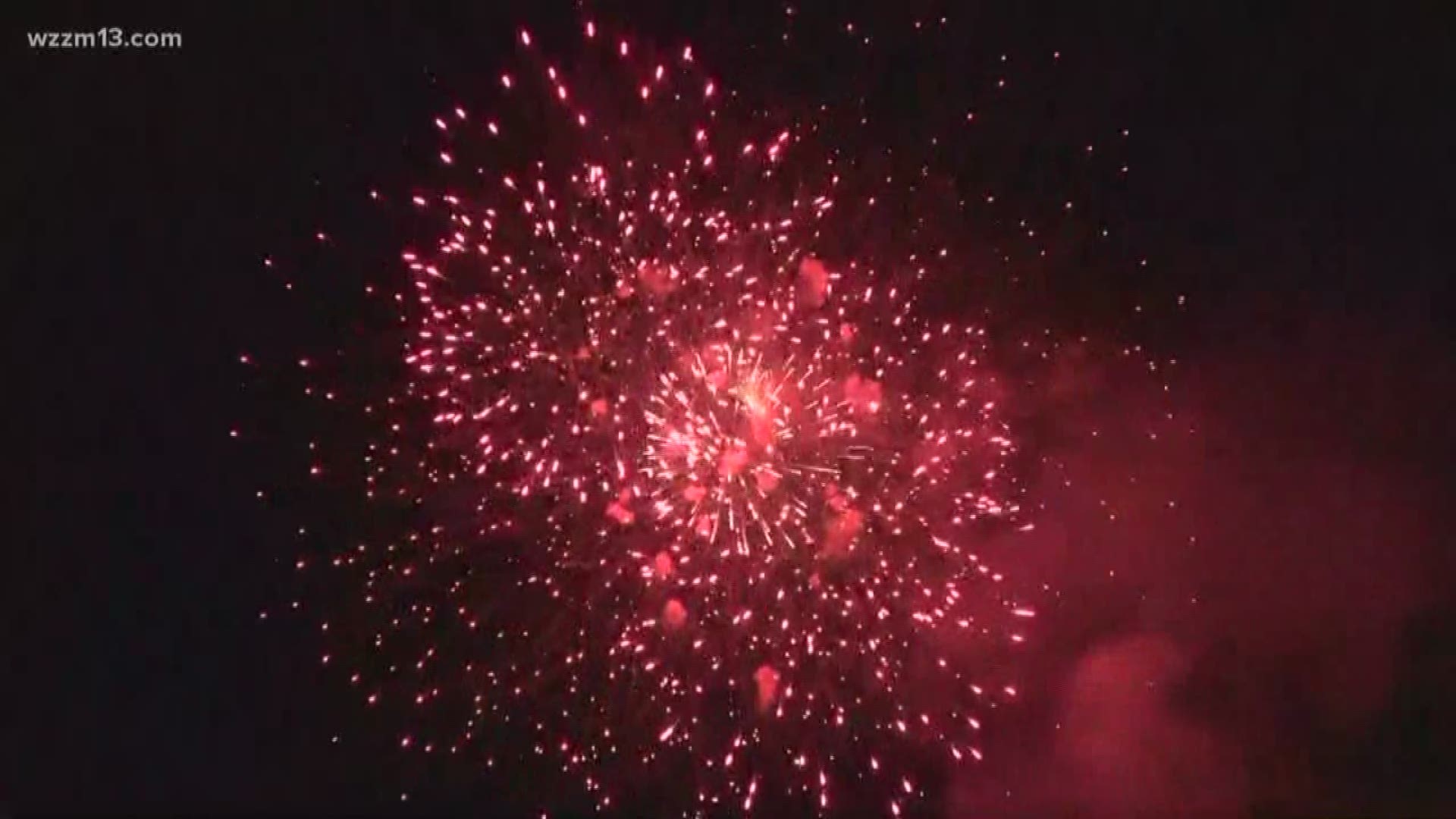KENT COUNTY, Michigan — Fireworks and Fourth of July, for many people, go hand-in-hand.
As of June 29, it is legal for Michigan residents to set off consumer fireworks during permitted hours. That is something more people are taking advantage of this year.
"What we're seeing is a lot of communities have canceled their fireworks shows. So, we're hearing from the folks who sell fireworks that quite a few people plan to put on their own shows," says Kevin Sehlmeyer, fire marshal for the state of Michigan. "You know, the theme of the National Fire Protection Association and fire marshals across the country has always been leave the shows to the professionals. Fireworks are dangerous. Yes, we regulate a program that sells fireworks, but you know, part of this time of year is getting out and making sure that we're getting the word out and what's different is I am concerned, this year, going into the Fourth of July that there are a lot more people that are going to purchase fireworks that maybe have never used them before."
That concern is exacerbated by this week's hot and dry conditions. According to the Michigan Department of Natural Resources "fireworks cause nearly 18,500 fires a year in the U.S., burning structures and injuring people."
"I think people underestimate something as simple as sparkler," says Sehlmeyer. "When we were growing up that was a big thing, your parents got some sparklers. A sparkler burns at 2000 degrees."
When it comes to fire risks, Sehlmeyer says there other concerns equal to those caused by the weather.
This week's weather forecast:
"We have a lot more fires from fireworks where a firework goes into a building. We have fireworks that go into vehicles, or the one we get every year is where the firework show is done and you gather up what's left and throw it in your trash dumpster. Then you go to bed and your house catches on fire because the stuff is not fully out. So, it does concern me with the grass, but realize that most of the stuff folks use, consumer fireworks, is actually going up in the air."
Sehlmeyer cautions fireworks consumers to keep a water source nearby when using them and always be compliant with the law.
"First off, you have to shoot it from private property. You can't shoot it from a park a school. The street is public property and the sidewalks, okay. It has to be on your property. With that being said you want to keep fireworks at least 25 feet away from any buildings. You want to give that firework a chance to go up and out as it is designed to do," says Sehlmeyer. "Also, nobody under 18 should be lighting fireworks. A lot of fireworks accidents that happen on an annual basis involve drugs and alcohol. The law is very specific. You cannot be under the influence of alcohol or drugs and light off fireworks."
He says if something goes wrong call for help immediately.
"Do not hesitate to call 911," he said. "We would much rather come out and figure out that there is no fire than for you to wait."
Sehlmeyer's department as well as the DNR and local fire officials are able to issue restrictions on the use of fireworks if concern over the weather continues to grow. So far, they are strongly offering recommendations such as the following:
Follow these tips to reduce risks with at-home fireworks:
- Toss hand-held fireworks such as sparklers into a bucket of water when finished.
- Keep a water source ready to spray embers from fireworks. Spray the entire area where you've been using fireworks with water when done.
- Don't try to re-ignite fireworks that won't go off.
- Don't launch fireworks into forests or fields. Dry grass or leaves could ignite.
- Always supervise kids and keep fireworks away from your face and eyes.
- Sky lanterns, also popular on holidays, can start wildfires, too. The wires they leave behind can also entangle wildlife.
►Make it easy to keep up to date with more stories like this. Download the 13 ON YOUR SIDE app now.
Have a news tip? Email news@13onyourside.com, visit our Facebook page or Twitter. Subscribe to our YouTube channel.




